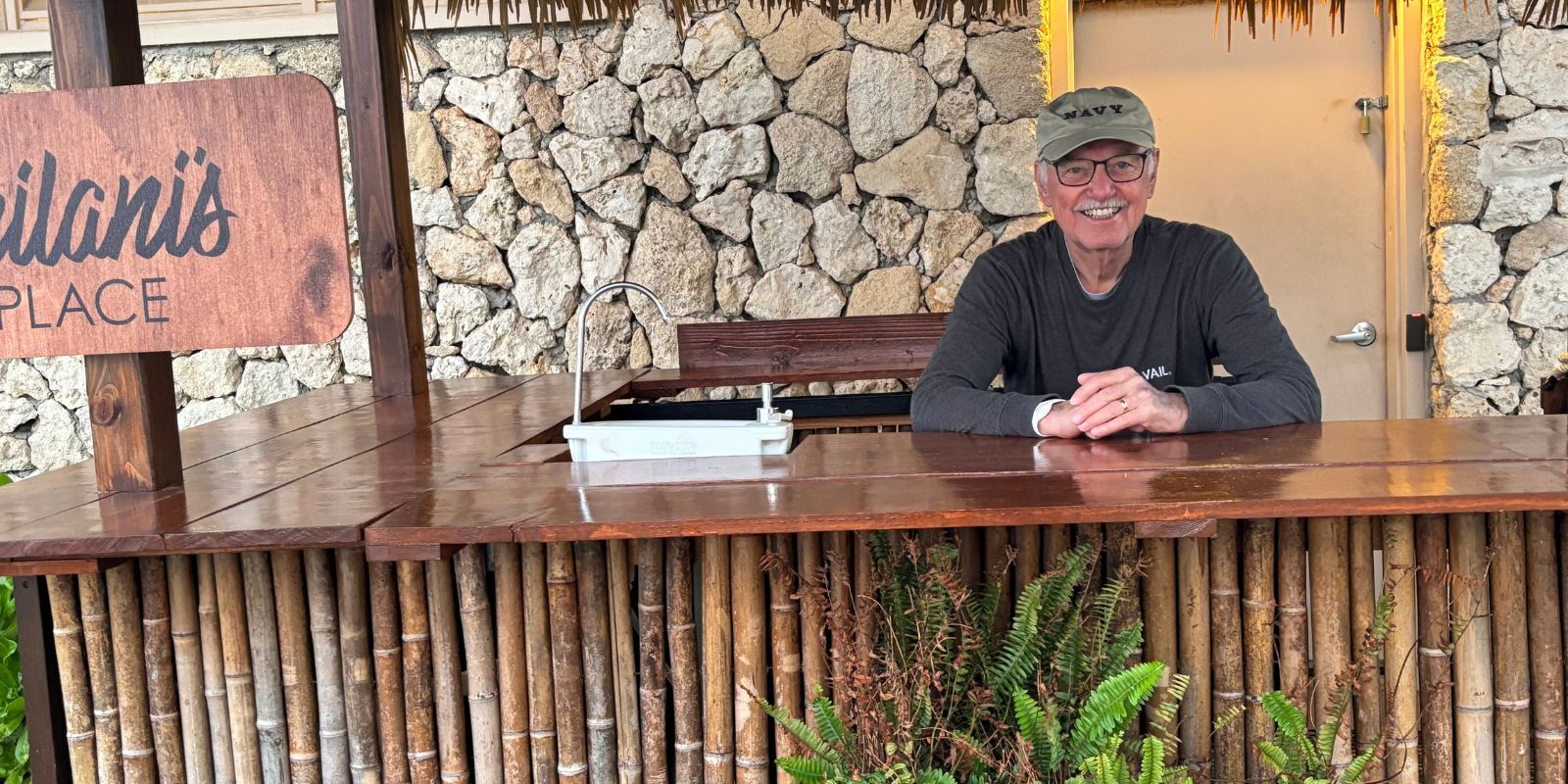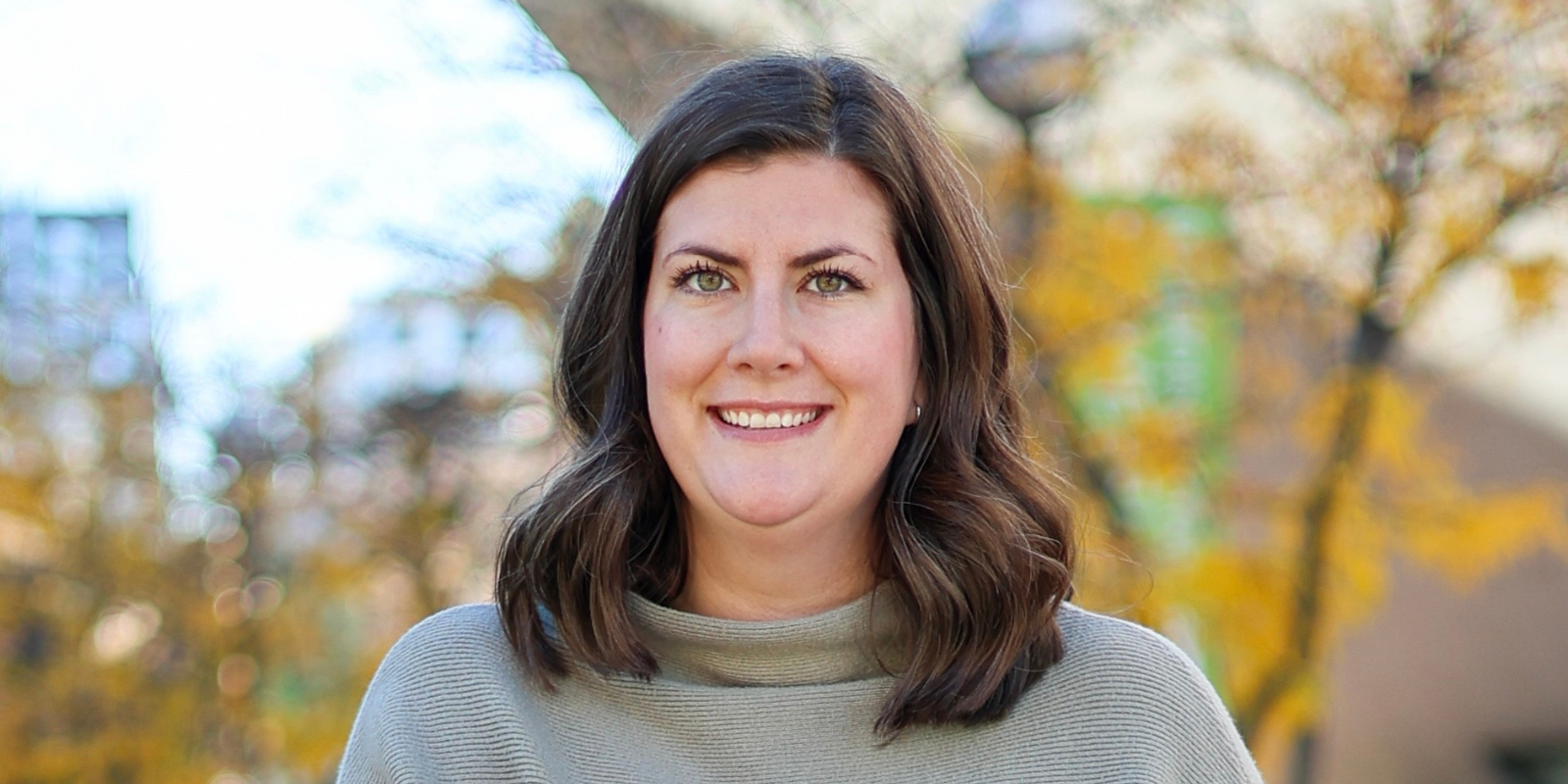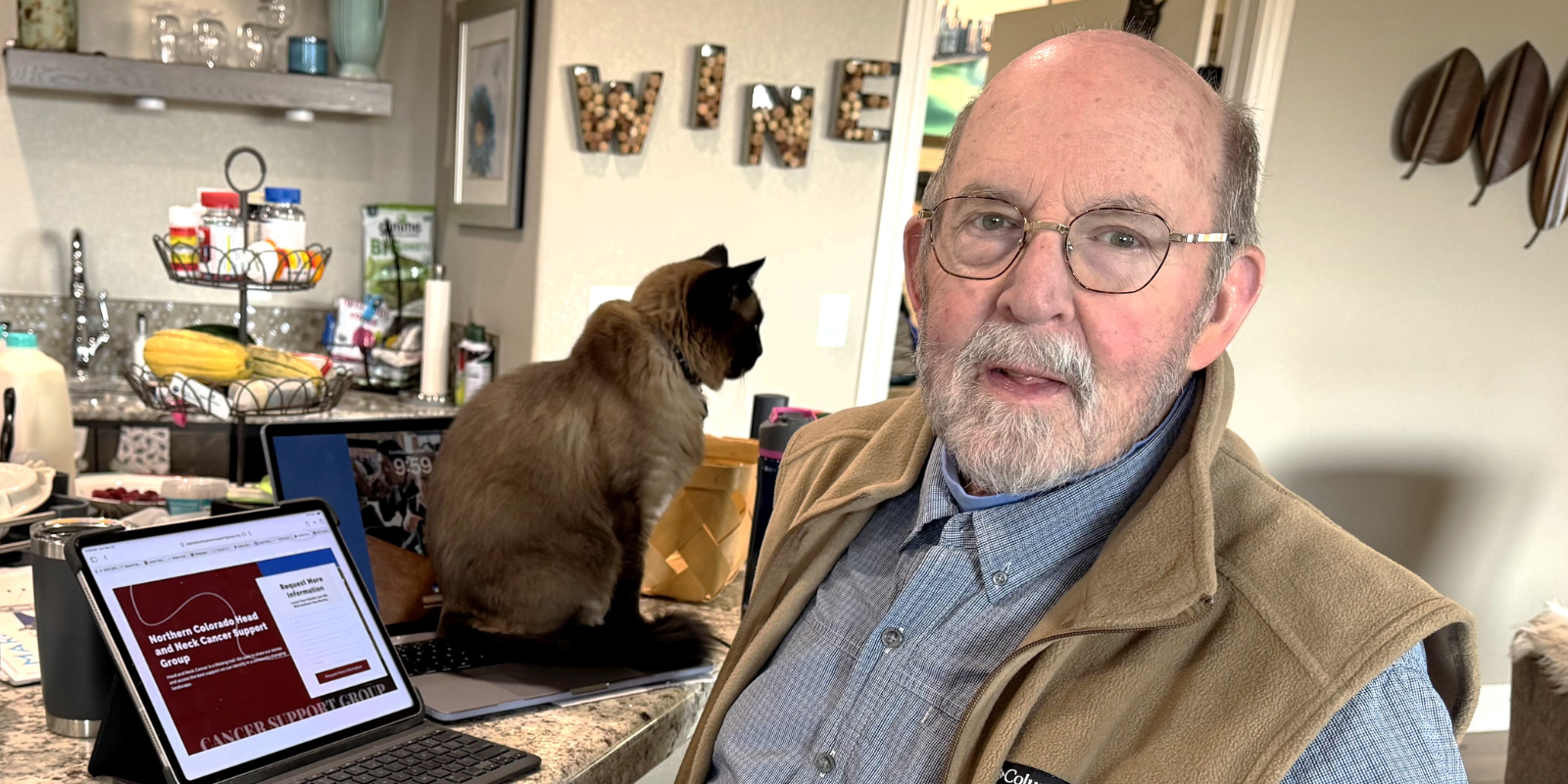Sean Ryan did everything right.
Ryan’s father died of colorectal cancer when he was just 45, so Ryan knew he was at high risk for the disease. When he turned 50, he made plans to get a screening colonoscopy. (In 2021, the U.S. Preventive Services Task Force lowered the recommended screening age for colorectal cancer from 50 to 45 for men and women at average risk for colorectal cancer.)
Though Ryan had no symptoms — no bleeding, no weight loss, no abnormal stool — the colonoscopy revealed a lesion that was biopsied and was determined by the pathologist to be a colon cancer. His cancer staging tests revealed no evidence of cancer spread.
Set up for speedy recovery
Fortunately for Ryan, things moved quickly with his surgery. Just weeks after his colonoscopy, he spent the day at the colorectal multidisciplinary clinic at the University of Colorado Cancer Center, where his case was evaluated by a wide-ranging team that included his surgeon, CU Cancer Center member Jon Vogel, MD.
“It was an all-day meeting where I got blood tests and other evaluations and met with Dr. Vogel and his team to look at what the different options were for surgery,” Ryan says. “He really wanted to do the surgery robotically, because even though there are more incisions, he liked the accuracy of it better.”
Vogel also wanted to perform Ryan’s colectomy — the term for removal of any or all of the colon — using a surgical robot because he knew that as a younger patient, Ryan stood a good chance of going home the same day as his procedure. Vogel has recently adopted the emerging practice of outpatient colectomy for select patients who undergo colectomy.
“We use the robot as often as we can because it’s a minimally invasive approach that allows people to have a very rapid recovery,” says Vogel, a professor of GI, trauma, and endocrine surgery in the CU Department of Surgery. “If you go back to the 1980s or 1990s, a colectomy most often involved an incision in your abdomen that would measure 15 to 20 centimeters in length, and it would typically involve a patient being in the hospital for up to a week after surgery.”
Minimally invasive laparoscopic surgery, which started in the 1990s, reduced the size of the incisions and reduced recovery time, Vogel says, especially when combined with enhanced recovery after surgery (ERAS), a set of protocols designed to speed recovery. Thanks to these innovations, as well as the surgical robot, the typical recovery time after a colectomy is now typically two to three days in the hospital. In Ryan’s case, however, Vogel wanted to shoot for a same-day release, a timeframe he has been exploring with patients who meet certain criteria.
“It started with my growing awareness that patients who are being admitted to the hospital after robotic colectomy often did not need to be there,” Vogel says. “It occurred to me that whatever we were doing for them in the hospital, we could be doing for them at home, or they could be doing it for themselves. Plus, they get better sleep in their own bed. People tend to recover faster in a familiar environment as opposed to a hospital bed.”
Identifying the right patients
Vogel also knew that in Ryan, he had the perfect patient with whom to push the envelope of colectomy recovery.
“He had an interest and willingness to do this extraordinary thing,” Vogel says. “There are people we present this opportunity to, and they don’t feel comfortable with it or they live too far away. Sean lives close to the hospital, he has a supportive family, and he was motivated to do it all in one day and go home.”
Though Ryan’s colectomy went off without a hitch, he couldn’t just walk out of the hospital right afterward, Vogel stresses. There are specific conditions he had to meet before he was ready to be discharged. His pain needed to be well controlled on oral medications, he had to be able to drink liquids without feeling nauseated, and he had to be able to stand up and walk around on his own and make easy transitions from lying down to standing up to sitting.
Ryan also had to follow a strict diet when he got home, since the operation directly affected his digestive system. It’s yet another part of the recovery that is easier for patients to do at home, Vogel says.
“It’s hard for me to set things up so that patients get what I want them to eat and drink in the hospital,” he says. “I’ll tell them to drink half a cup of clear liquids every hour and have some graham crackers or toast if they get hungry. But in the hospital, you have limited choices. You can order a liquid diet, but on a liquid diet, you can’t have crackers and toast. It’s a lot easier for them to follow the diet I want them to if they’re at home.”
Ryan, who has returned to his job as an engineering technician with the National Parks Service and has even gone fly fishing once or twice since his operation, is equally happy to have returned home the same day.
“At home I could find a comfortable spot, and it felt easier to move around in a place I know,” he says. It was the finalstep in a day that went better than he expected, given that he was having colorectal surgery.
“The young guy who checked me in was cheery with everyone, and that was at 6:30 in the morning,” he says. “That good experience continued with the guy who walked me back to the prep area and the nurses there. Everyone I dealt with was great, down to the guy who wheeled me out at the end of the day.”
Outpatient colectomy numbers continue to grow
Since Ryan’s procedure in April, Vogel has performed five more outpatient colectomies in which patients went home the same day as their operation. None have had to be readmitted due to complications. It’s a number he hopes continues to grow, as returning home soon after surgery contributes to better sleep, easier access to medications, and better control over diet, not to mention patients being more generally relaxed, with lower stress levels.
“The rapid recovery is really amazing,” Vogel says. “If you don’t have to be admitted to the hospital, then you can get back to your normal activities a lot quicker. I’ve had patients who have had minimally invasive colectomies who work from home on a computer, and they’re back to work two days after the procedure. It’s noteworthy for me, because I used to do these operations in the era when patients had to be in the hospital for a week. It’s been an amazing evolution.”




